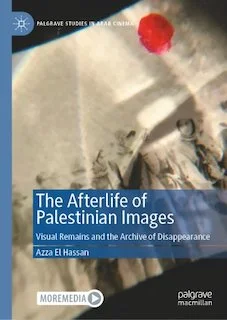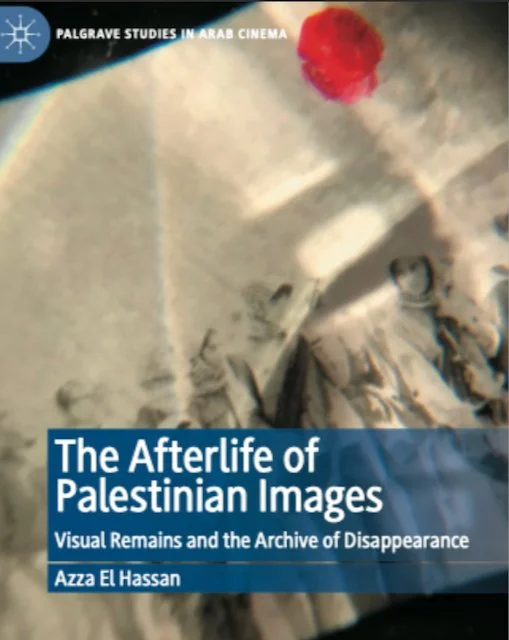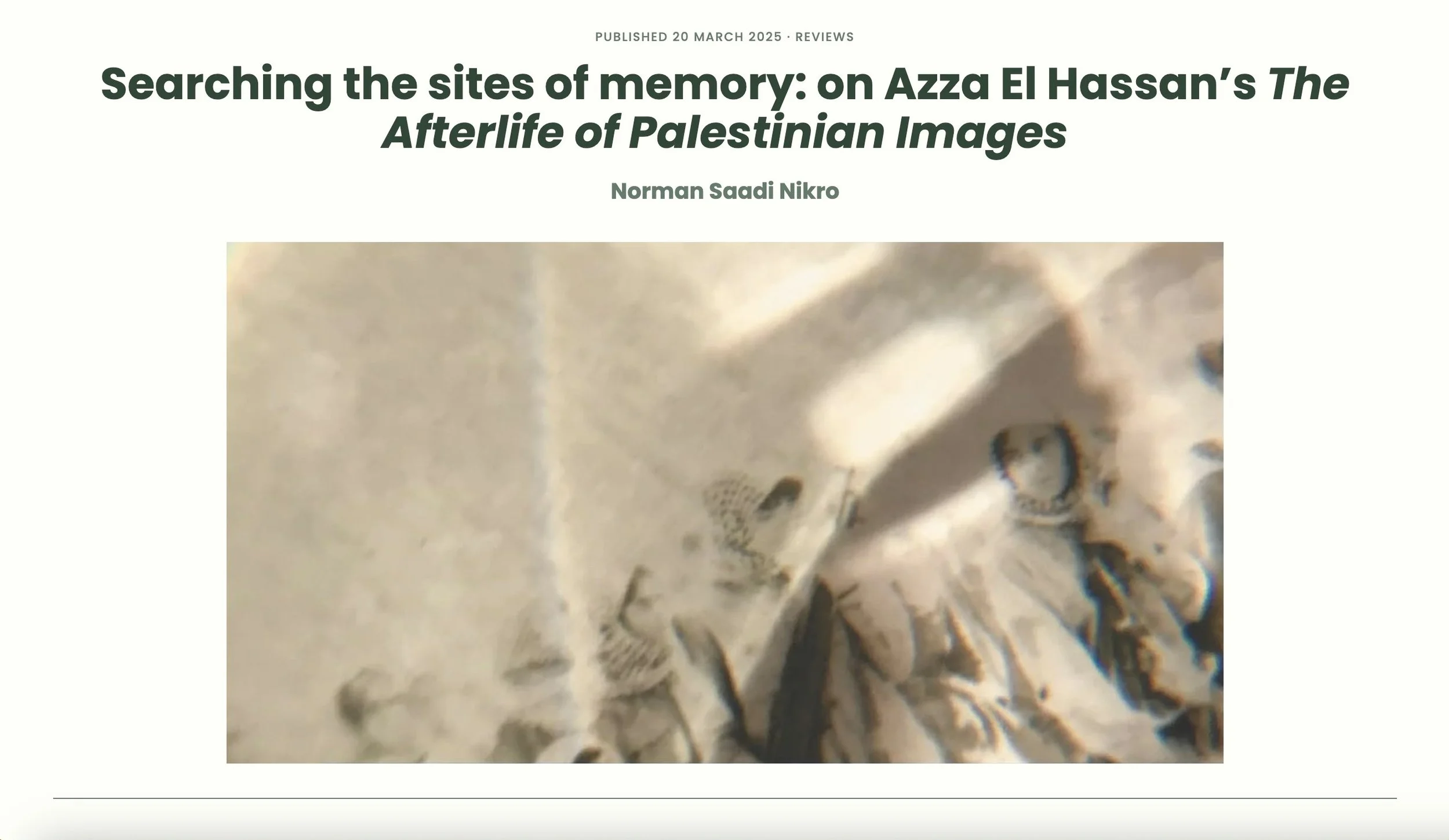Book
The Afterlife of Palestinian Images is a groundbreaking study of how colonial violence alters and changes visual objects - which in turn affects how a society and culture relates to its own images. Based on the practice-based creative methodology of Palestinian filmmaker and researcher Azza El Hassan, this book explores the re-use and re-appropriation of photos, film and media equipment that have survived looting and destruction, objects which become a constant reminder of what was and what has been lost. El Hassan goes beyond using these visual remains as simple evidence, demonstrating how artistic engagement can reconfigure them into new narratives and establish a renewed sense of cultural identity. While previous research has explored why colonial structures practice native archive plundering, as well as into how a culture reckons with the absence of archival records, this book uniquely addresses how plundered cultures relate to the actual remains of their archives. As a scholar and an artist, El Hassan reconciles a problematic past and present in the search for a new visual experience emerging out of the ruins, finding ways to move forward after destruction.
The Afterlife of Palestinian Images
by Azza El Hassan
The Afterlife of Palestinian Images is a groundbreaking study of how colonial violence alters and changes visual objects - which in turn affects how a society and culture relates to its own images. Based on the practice-based creative methodology of Palestinian filmmaker and researcher Azza El Hassan, this book explores the re-use and re-appropriation of photos, film and media equipment that have survived looting and destruction, objects which become a constant reminder of what was and what has been lost. El Hassan goes beyond using these visual remains as simple evidence, demonstrating how artistic engagement can reconfigure them into new narratives and establish a renewed sense of cultural identity. While previous research has explored why colonial structures practice native archive plundering, as well as into how a culture reckons with the absence of archival records, this book uniquely addresses how plundered cultures relate to the actual remains of their archives. As a scholar and an artist, El Hassan reconciles a problematic past and present in the search for a new visual experience emerging out of the ruins, finding ways to move forward after destruction.








